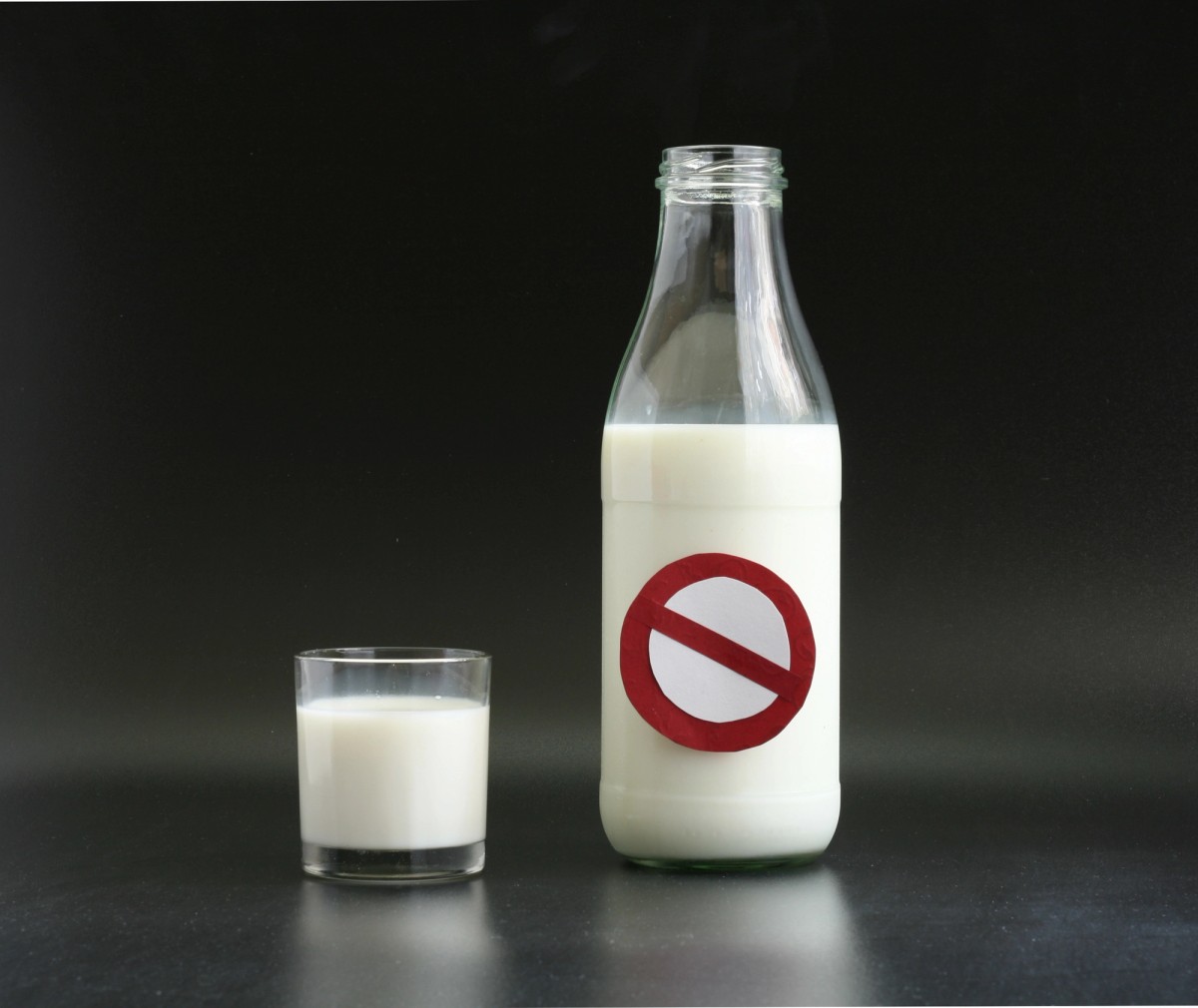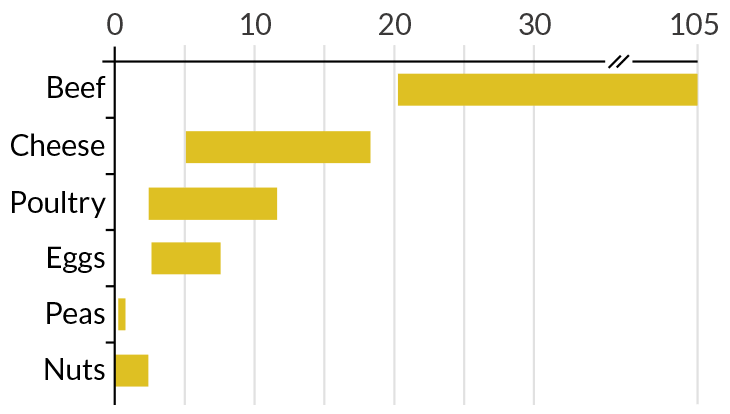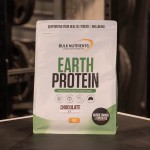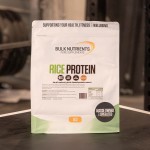The Benefits of Plant-Based Food and Proteins

Our move to incorporate plant-based proteins
Over the last 2-3 years we have been investing very heavily in our plant-based products while sampling new sources from across the globe consistently. We believe our current supply, which includes pea protein from Canada, organic rice protein from China are some of the finest proteins on the market.
Technology is increasing so these products are becoming better than ever. They make sense for your body, for the planet and due to our great prices – for your wallet.

Plant based proteins aren’t just for vegans
Another point we want to make clear is these proteins should not be mistaken for “vegan only” diets.
At Bulk, we don’t see plant-based proteins as an all or nothing proposition. Instead, we believe the healthiest diets include an array of foods, with plant foods and proteins being a key part of that.
We know to make a big shift in habits it must make sense financially, which is why at Bulk Nutrients we work very hard to ensure we’re saving you as much as possible.
While incredibly high in quality, our plant-based proteins are not boutique products marketed to a select few. They are affordable, real alternatives to whey, which we believe are attainable for everyone, not just Instagram stars.
So, why adopt more plant-based products? The following are a few reasons why you may want to adopt more plant products in your lifestyle.
Fewer allergies
According to US Government statistics, 65% of the population has a reduced ability to digest lactose after infancy. This ranges from serious reactions to mild discomfort and everything in between.
In East Asian populations lactose intolerance can affect as many as 90% of the adult population. The longer the history of milk usage, the higher the tolerance. It’s for this reason people in western populations tend to have much lower rates of lactose intolerance.
Constant milk consumption has led to a change in this (lactose) gene, where the small intestine sustains lactase production, which is necessary for processing lactose. This usually means as we age processing lactose becomes more difficult.
In case you didn’t know, plant proteins are 100% lactose-free. They contain no dairy or animal by matter, whatsoever. So, for those with mild (gas, bloating) or severe (anaphylaxis) lactose intolerance, this is a literal weight off your stomach.

The environmental impact
As time progresses we are becoming more aware of our environmental and ecological impact, here is where plant proteins get a massive win.
Some research has shown 20 servings of vegetables have fewer greenhouse gas emissions than a single serving of beef!
Research also suggests if people were to replace half their animal protein sources (which came from higher impact suppliers) with plant-based proteins, global food emissions could decrease by as much as 35%.
By reducing animal-based food consumption we would significantly reduce water consumption as animal husbandry utilises more than 50% of freshwater – with total agriculture being 70% of freshwater usage.
Studies have suggested there would be a real-world reduction in total water usage of between 5 and 10% if animal-based foods were reduced to between 25 and 50% of the current levels.
The table below models the amount of water that would be saved if the animal-based protein was reduced to between 50% and 0% compared with current typical diets.
What would happen if we reduced animal protein intake?
Table source: Global protein, energy and water use in the different scenarios. OD stands for Original Diet, RD stands for Recommended Diet and A50-A0 to diets with limited animal protein content.
| OD | RD | A50 | A25 | A12.5 | A0 | |
|---|---|---|---|---|---|---|
| Animal-based protein (% of total) | 33.3% | 31.2% | 24.7% | 17.6% | 11.0% | 0% |
| Animal-based energy intake (% of total) | 16.6% | 16.3% | 12.6% | 8.5% | 5.2% | 0% |
| Blue water use (% difference to RD) | +1.3% | 0% | -3.8% | -6.4% | -8.9% | -14.4% |
| Green water use (% difference to RD) | +2.2% | 0% | -6.0% | -11.0% | -15.1% | -20.8% |
Comparing CO2 emissions from various protein sources
The difference in C02 emissions is potentially even greater, with cows contributing significantly to greenhouse emissions. The below graph compares CO2 emissions from various protein sources.
Table source: Kilograms of CO2 equivalent released with 100g of protein.

It’s good for your health
Perhaps the biggest reason people adopt plant-based diets is the direct impact on their health.
In 2006 after reviewing data from 87 published studies, a new study reported vegan and vegetarian diets were highly effective for weight loss. They also found vegetarian populations had lower rates of heart disease, high blood pressure, diabetes and obesity.
They found vegetarian diets result in weight loss of approximately 450g per week without a dependency on exercise.
For weight management
In another study, they suggest vegetarian diets may be better for weight management and may be more nutritious than diets that include meat.
In their study, they showed vegetarians were slimmer than their meat-eating counterparts.
Vegetarians were also found to consume more magnesium, potassium, iron, thiamin, riboflavin, folate, and vitamins and less total fat. The authors conclude vegetarian diets are nutrient-dense and can be recommended for weight management without compromising diet quality.
Reduced diabetes
The Adventist Health Studies found vegetarians have approximately half the risk of developing diabetes compared to non-vegetarians.
In 2008, another study reported non-vegetarians were 74% more likely to develop diabetes over a 17-year period than vegetarians.
Longer lifespan
It has been shown the benefit of plant-based diets on mortality may be primarily caused by decreased consumption of red meat.
Several studies (study two) have documented the benefits of avoiding excessive consumption of red meat, which is associated with an increased risk of all-cause mortality and an increased risk of cardiovascular mortality by a margin of 3.6 years.

What do we at Bulk Nutrients suggest?
Well, this question will depend on who you ask. At Bulk Nutrients, we are a group of 60 people with varying diets. This includes carnivores, vegans and everything in between.
It’s clear there is an overwhelming body of evidence to suggest incorporating more plant-based proteins can help the environment, improve your health and longevity.
For those who love dairy and whey, we are not saying to give it up, however, we do recommend a combination of plant and animal-based protein. We also think now is as good a time as ever to get on board the plant bandwagon by adding some variety to your diet.

Ben Crowley, founder of Australia's top sports supplement brand, Bulk Nutrients, combines two decades of industry experience with a commitment to employee work-life balance and career growth.
A firm believer in quality, Ben founded Bulk Nutrients to provide affordable, high-quality products, even amid global challenges.
Apart from business, he enjoys family time, outdoor activities, and adrenaline-charged car projects.
More about Ben CrowleyReferences:
- Berkow, S. and Barnard, N., 2006. Vegetarian Diets and Weight Status. Nutrition Reviews, [online] 64(4), pp.175-188. Available at: Vegetarian Diets and Weight Status.
- Farmer, B., Larson, B., Fulgoni, V., Rainville, A. and Liepa, G., 2011. A Vegetarian Dietary Pattern as a Nutrient-Dense Approach to Weight Management: An Analysis of the National Health and Nutrition Examination Survey 1999-2004. Journal of the American Dietetic Association, [online] 111(6), pp.819-827. Available at: A Vegetarian Dietary Pattern as a Nutrient-Dense Approach to Weight Management.
- Hunnes, D. The Case For Plant Based | UCLA Sustainability. [online] UCLA Sustainability. Available at: The Case For Plant Based | UCLA Sustainability.
- Jalava, M., Kummu, M., Porkka, M., Siebert, S. and Varis, O., 2014. Diet change—a solution to reduce water use?. Environmental Research Letters, [online] 9(7), p.074016. Available at: Diet change—a solution to reduce water use?.
- Genetics Home Reference. Lactose Intolerance. [online] Available at: Genetics Home Reference.
- Milius, S. A Big Analysis Of Environmental Data Strengthens The Case For Plant-Based Diets. [online] Science News. Available at: A Big Analysis Of Environmental Data Strengthens The Case For Plant-Based Diets.
- Poore, J. and Nemecek, T., 2018. Reducing food’s environmental impacts through producers and consumers. Science, [online] 360(6392), pp.987-992. Available at: Reducing food’s environmental impacts through producers and consumers.
- Singh, P., Sabaté, J. and Fraser, G., 2003. Does low meat consumption increase life expectancy in humans?. The American Journal of Clinical Nutrition, [online] 78(3), pp.526S-532S. Available at: Does low meat consumption increase life expectancy in humans?.
- Snowdon, D. and Phillips, R., 1985. Does a vegetarian diet reduce the occurrence of diabetes?. American Journal of Public Health, [online] 75(5), pp.507-512. Available at: Does a vegetarian diet reduce the occurrence of diabetes?.
- Harvard Health. The Right Plant-Based Diet For You - Harvard Health. [online] Available at: The Right Plant-Based Diet For You.
- Tuso, P., 2013. Nutritional Update for Physicians: Plant-Based Diets. The Permanente Journal, [online] 17(2), pp.61-66. Available at: Nutritional Update for Physicians: Plant-Based Diets.
- Vang, A., Singh, P., Lee, J., Haddad, E. and Brinegar, C., 2008. Meats, Processed Meats, Obesity, Weight Gain and Occurrence of Diabetes among Adults: Findings from Adventist Health Studies. Annals of Nutrition and Metabolism, [online] 52(2), pp.96-104. Available at: Meats, Processed Meats, Obesity, Weight Gain and Occurrence of Diabetes among Adults: Findings from Adventist Health Studies.

































